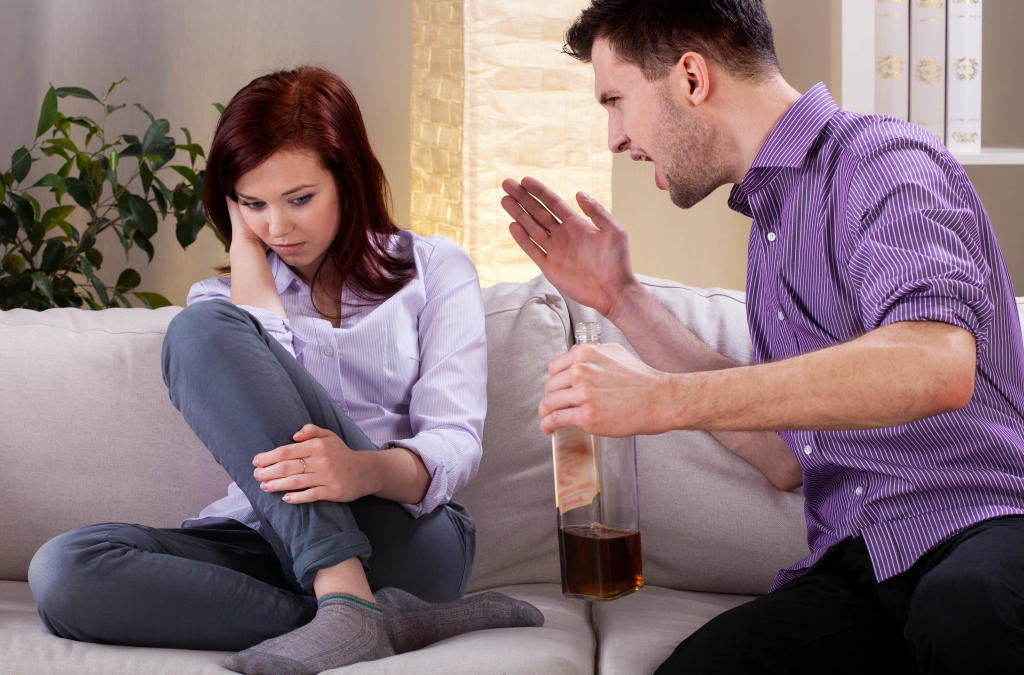Alcoholism & Anger Management: Mental Health & Addiction
Content
Many people may naturally become angry or upset when consuming alcohol, but it’s not necessarily their fault. Sometimes, https://ecosoberhouse.com/ people with alcohol use disorders have an unhealthy relationship with alcohol due to specific genetics.
End-Stage Alcoholism – Addiction Center
End-Stage Alcoholism.
Posted: Wed, 10 Apr 2019 07:00:00 GMT [source]
AUD affects everyone around them, from loved ones to colleagues to friends. In fact, drinking too much can not only cause lasting physical damage but can leave behind deep emotional scars, too. People with AUD are often verbally abusive, emotionally volatile, and may struggle with serious depression, anxiety, and anger.
Alcohol Can Unleash Angry Emotions or Abuse
“If you feel that your anger is really out of control, if it is having an impact on your relationships and on important parts of your life, you might consider counseling to learn how to handle it better. Both inpatient and outpatient programs for alcoholism addiction provide a supportive and safe environment for overcoming the grip of alcohol on your life. But these programs do not address only addiction – they also often offer counseling services to talk through your issues with anger. More than anything, a rehab program can help you create ways to deal with both alcoholism and anger. Even if you’re not ready to attend a more formal alcoholism rehab program or one-on-one counseling, it is a good idea to start attending an AA community support group. These groups are designed to help those struggling with alcohol addiction overcome the consequences of their condition – including being able to control their angry responses. AA meetings are typically open to anyone who wants to attend, and offer a nonjudgmental and supportive environment to talk through the effects alcoholism has had on your personal life.
- She comes to The Freedom Center with over 14 years of direct experience in residential and outpatient treatment between the private and federal sectors.
- This doesn’t mean that they cannot overcome alcoholism, but it recognizing it as a disease is a good starting point.
- But, anger problems are often cited as one of the main culprits of relapse among recovering alcoholics.
- Emotional regulation skills and relapse prevention tools are also taught.
- Outpatient programs are often part of aftercare programs once you complete an inpatient or PHP program.
Because alcohol is a psychoactive drug, it temporarily alters your mood, perception and feelings. Intoxicated people may feel more outgoing, lonely, joyful — or angry. For example, if you start drinking when you’re lonely and sad, you may find the alcohol makes you feel even more desolate and distressed than you did when you were sober. While anger is an emotion you experience when you feel threatened, aggression is a hostile behavior that results in physical or psychological harm to yourself or others. Some individuals exhibit “trait anger,” a personality trait that means they continually look for triggers that make them angry. There are several risk factors, all of which impact people differently. At first, alcohol gives the sensation of relaxation which is part of the reason why people enjoy drinking.
Find your treatment that works for you!
Continue reading to learn more about the link between alcohol and anger, including which risk factors exist, how alcohol-related aggression can be dangerous and more. By understanding how alcohol abuse influences your mood, you can learn to make positive choices instead of ones you may regret. The study concluded that alcohol increased the odds of physical aggression in those men who had high trait anger and poor anger management skills. It also noted that sexual aggression was higher with alcohol, even in men with low trait anger and reasonable anger management skills. Drinking may also be a method to self-medicate negative emotions, including anger.
- This study aims to examine the relationship of anger with treatment outcome among alcohol users after 1 year of treatment.
- Bunmi is dedicated to helping her clients reach their full potential and build their toolkit of resources to support their long-term recovery.
- She earned her Master’s Degree in Clinical Counseling from Johns Hopkins University with an undergraduate degree in Psychology from the University of Maryland.
- Identifying those factors that might contribute to heightened anger when consuming alcohol is important for individuals who have anger issues and those who treat them.
Rehab will begin with a detox, where the toxins from the alcohol are expelled from the body. Once the individual has become stable they will be ready to engage in therapy. This point is easier said than done, but you can achieve it with help from a treatment program. If you think about it, a crucial part of being aggressive when intoxicated is lacking self-awareness.
Identify What is Making You Angry
Males who abuse alcohol, experience and express more anger than males who do not abuse alcohol. Experience and expression of anger was also related to the poor coping styles and expectancies regarding the effects of alcohol for males who abuse alcohol.
- It’s because you’re not willing to feel those emotions, that anger and that hurt, and your energy is getting trapped.
- Whether you’re contending with a mild, moderate, or severe addiction, our team can help you navigate the road of recovery and begin creating the kind of life you truly desire.
- They also take the slightest offense or insult and immediately turn things into an altercation.
- You don’t need to hide your feelings; it’s important to be honest with your loved one about the effect their alcoholism and anger is having on you.
- Consider both of those factors paired with alcohol’s ability to make certain individuals more aggressive and you’ve got a recipe for conflict and confrontation that’s likely to end badly.
Additionally, even people not struggling with a substance use disorder can experience anger and these other emotions. The most self-evident way to stop being an angry drinker is to quit drinking altogether. By ending alcohol misuse, you can make positive decisions with a clear outlook. Those who are dependent on alcohol should participate in alcohol addiction treatmentto break the cycle. Remember, quitting a substance cold turkey can lead to health issues, so it’s best to enlist professional help. Alcohol withdrawal can be potentially life-threatening, in the case of severe dependence. Medical detox is typically considered the optimal method for allowing alcohol to safely process out of the body while under continual medical supervision.
Understanding Anger and Aggression
The problem is when someone gets stuck in this step and ignores the situation. Eventually, they fail to deal with anger which interferes with their recovery progress. When this happens, they’re likely to return to their addiction and have even more difficulty finding recovery once again. One study published in a journal calledCognitive, Affective, & Behavioral Neurosciencesought to explore factors that make some people more aggressive when they drink. We start by diagnosing your anger problems and developing a unique treatment plan based on your personal and medical history and presenting symptoms. Life can be really frustrating, and you might find yourself struggling to deal productively with emotions of anger. Or, you may have someone in your life or family who has a problem with a short fuse or a hot temper.

You over-drank and then said or did something that upset someone you cared about? Perhaps that pile of anger inside you exploded and you took it out on a loved one. Either way, at the moment, you had no fear of long-term consequences due to the way alcohol impacted your brain. When you drink, the alcohol affects the part of your brain that usually keeps that anger in check.
Knoxville’s Office Kegerator Service Raises Questions About Drinking on the Job
People lash out at their spouse or partner as a way to release stress. This may feel like a safer target rather than against Alcoholism and Anger someone on the road or at work. The loved one becomes a bullseye at which to direct pent-up frustration, stoked by alcohol.
What happens when you drink alcohol everyday?
Over time, excessive alcohol use can lead to the development of chronic diseases and other serious problems including: High blood pressure, heart disease, stroke, liver disease, and digestive problems. Cancer of the breast, mouth, throat, esophagus, voice box, liver, colon, and rectum.


Leave a Reply
Want to join the discussion?Feel free to contribute!